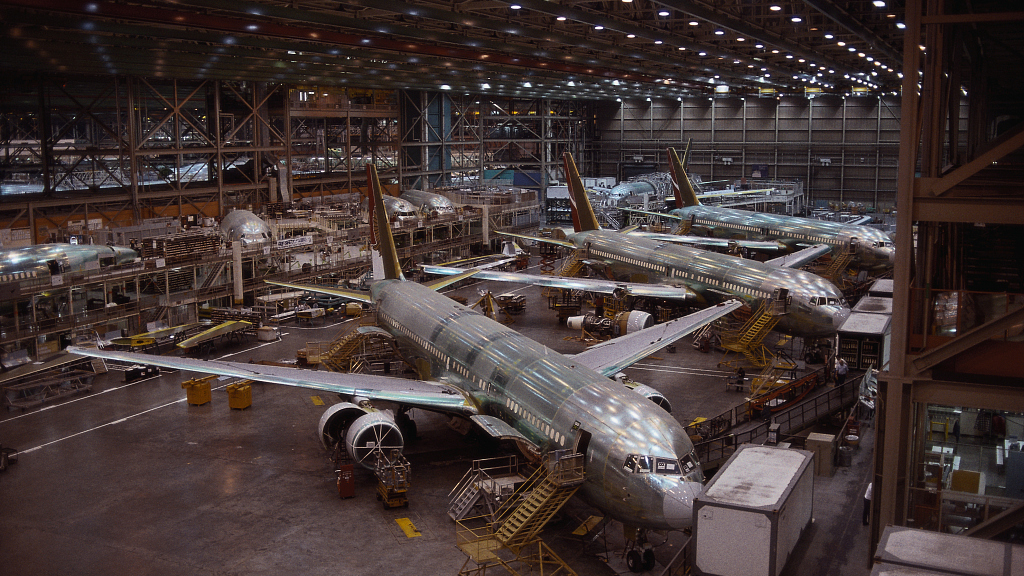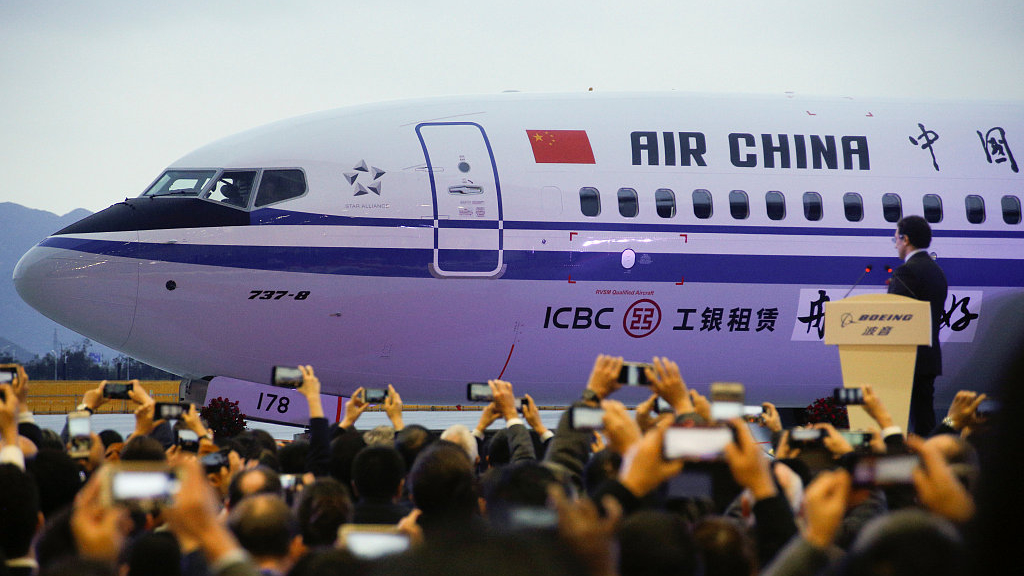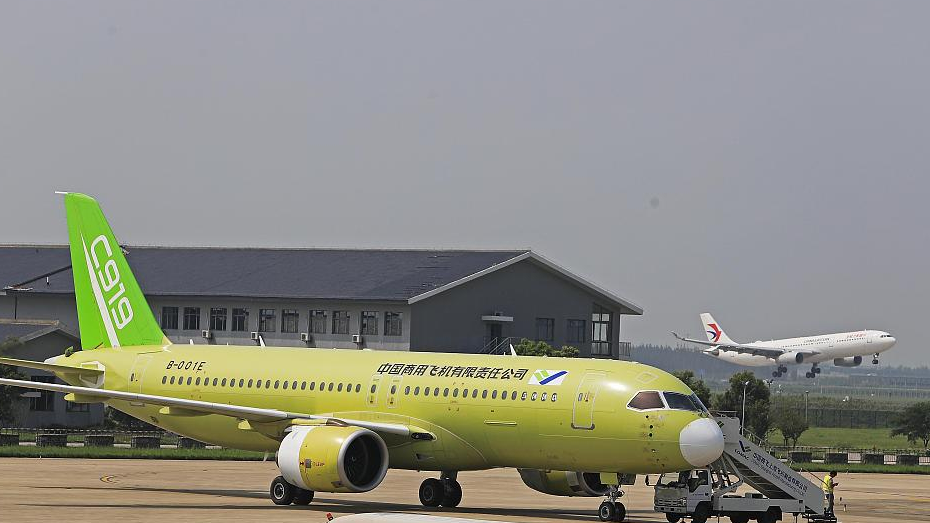
Interior of a Boeing plant./ VCG Photo
Interior of a Boeing plant./ VCG Photo
In one decade, the Chinese aviation market will become the world's largest aviation market, says Boeing Commercial Market Outlook. The report released on Tuesday adds that China will need a total of 8,090 new airplanes over the next 20 years, the largest share of any country in the world.
The total number includes 5,960 single-aisle planes, 1,780 widebody, 120 regional jets, and 230 freighters. Boeing notes a 4.5 percent fleet growth by 2038, from 3,890 planes in 2018 to 9,330 in 2038.
If the prognostics become true, China would pay around 2.9 trillion U.S. dollars: 1.3 trillion in the new aircraft and an additional 1.6 trillion in services, including maintenance and engineering, training, marketing, and ground handling.
"Currently, Chinese airlines compromise 15 percent of global traffic and worldwide fleet. The traffic and fleet shares will increase to 18 percent over the next decade and beyond," says Boeing.
Middle-class consumers push the economy
The American company expects a six percent traffic growth in the next two decades and stresses that the key fundamental driver for passenger growth is the nation's continuing economic prosperity, with the economy growing at an average rate of 7.6 percent in the last decade.
According to the report, China's middle class tripled in the past 10 years and it's expected to double in the next decade. "Growth in middle-class consumers, comprising more than 30 percent of the total population, is also pushing China towards a more consumption-driven economy. Consumer spending growth is a key driver of passenger travel demand."
This push from the middle-class is helping China achieve another aviation milestone. Boeing states that "it took 34 years (1965– 1999) for the U.S. market to go from 100 billion to one trillion RPKs (Revenue Passenger Kilometers). In China, this same milestone was attained in just 17 years. At projected growth rates, China will reach 1.5 trillion RPKs in the next three years."
This breakthrough is achieved with lower per capita income levels (in purchasing power parity terms) indicating that air travel today has become far more affordable and accessible, notes the Chicago-based aircraft maker.

Guests attend a ceremony marking the 1st delivery of a Boeing 737 Max passenger airplane to Air China at the Boeing Zhoushan completion center in Zhoushan, Zhejiang province, China, December 15, 2018./ VCG Photo
Guests attend a ceremony marking the 1st delivery of a Boeing 737 Max passenger airplane to Air China at the Boeing Zhoushan completion center in Zhoushan, Zhejiang province, China, December 15, 2018./ VCG Photo
China-Middle East connections on the rise
According to the passenger traffic flow ranking comprised by 41 general route flows, the intra-China flow occupied the fourth place in 2008 with 237 billion in RPK (the number of kilometers traveled by paying passengers). By 2018, it had reached third place with 801 billion in RPK and by 2028 it will have grasped the first place with 1,740 billion in RPK. Until 2038, the prospect is that traveler flow within China will remain in the first place with an estimated RPK of 2,648 billion.
Data shows that the China-Middle East traffic flow might have one of the biggest positive developments. These routes will move from the second-to-last place (40th) to number 17, meaning an RPK increase from 11 billion in 2008 to 305 billion by 2038.
Only intra-South Asia will see a similar and flagrant evolution from the 31st position (40 billion RPK in 2008) to the eighth in 2038 with 574 million in RPK.
The ranking shows that by 2038, the China-Europe flow will occupy 12th place; followed by the China-North America in 15th; and China-Northeast Asia and China-Oceania flow in 30 and 31 places, respectively.
Talent pipeline
With the Chinese aviation market booming, internally and internationally, there will be a need for a strong talent pipeline.
Boeing says that cadet pilot training and maintenance apprenticeship programs will be key drivers of a 35 billion U.S. dollars training market.
New personnel demand will reach 398.000 people, including 124.000 pilots and 150.000 cabin crew members.

Chinese C919 aircraft in flight tests in Shanghai Pudong International Airport, August 2019. /VCG Photo
Chinese C919 aircraft in flight tests in Shanghai Pudong International Airport, August 2019. /VCG Photo
China's C919 in intensive test flights
But China is not only relying on international manufacturers to meet internal demand. The country is also developing and betting on its own player, the C919 passenger airplane made by domestic aircraft manufacturer Commercial Aircraft Corp. of China (COMAC).
The C919, China's first homegrown trunk jetliner, conducted a successful maiden flight on May 5, 2017, at Shanghai Pudong International Airport. Since then, many prototypes have been tested. On August 1, the fourth C919 prototype completed its first test flight mission.
Until the end of the year, six C919 prototypes will be subjected to intensive test flights, and two more will join the fleet.
COMAC has already received 815 orders from 28 customers worldwide.
Read more: China's C919 to enter intensive test flight phase in H2